There is no shortage of great SEO tools on the market, and if you are open to paying for them, I highly recommend Ahrefs and/or SEMrush, both of which can be tried for free before you commit to purchase.
That being said, there are also a lot of really smart, and free keyword research tools that you can use if you don’t see a need to pay $99 per month for SEO tools.
Keyword research is obviously paramount when building a blog or eCommerce site. Knowing what to say and precisely how to say it so your content will actually be seen by your target audience is what it’s all about.
In short, the kind of keyword info that you want to pay attention to when using all of these SEO tools are things like:
- Frequency of usage
- Alternative keyword sets
- Questions that people ask on the subject
You need to form a mental image of who your target reader is and what they need to know from you. Get an idea in your mind of the keywords they might use to find such information in a search. It’s important to realize at this point that you are only partially correct in your assumptions.
Now, rather than going with your best guess, use some simple methods to target the right people using the right keywords. This process will help you figure out what words and combinations of words are used by your audience and hone your idea of what they want to know from you using from the search engines themselves.
What Are the Top Free Keyword Research Tools for SEO?
Table of Contents

Answer the Public is a fantastic and unique tool that takes the billions of daily Google searches and extrapolates all of the questions being asked about your keywords by evaluating autocomplete data. This data provides invaluable insight into the mind of your reader, including what is driving them, what they are searching for, and what they want to know about.
I think most users would agree that this isn’t a standalone or comprehensive tool that will provide you with an all-in-one SEO solution. However, this is a very creative and helpful tool that will not only be beneficial, but I would say will become a crucial part of your SEO strategy.
The free version allows you to perform a handful of free searches per day. Make sure you select the right country and language and watch out for misspellings, or you could burn your free searches for the day and have to use a VPN or other means to get more.

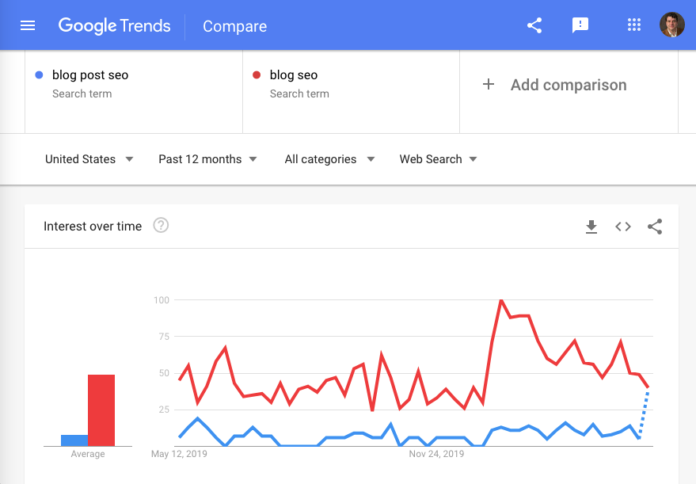
Google Trends is a really handy tool that packs a lot of punch. It essentially allows you to compare keyword sets and examine their seasonality and popularity over time.
Are you trying to discover your niche and want to find out what is “hot”, or not, so you can make an informed decision?
Are you wondering how popular a search term is – whether it is “trending” and on the rise or declining, so you can be ahead of the curve?
Would you like to know what search terms are related to yours, so you can expand your reach?
Do you want to monitor how well your competitors are doing compared to you, so can preemptively gain competitive advantage?
Do you want to know where your customers or readers are coming from (which country, state, region, city) so that you can laser focus your SEO strategy and Adwords budget?
Then you NEED to use Google Trends.
There are a ton of benefits to this trending data, like using seasonal and recurring trends to inform your decisions on your upcoming content calendar. And, since Google always wants to see fresh and relevant content, Trends can also help you to infuse new life into older blog posts, articles, or product descriptions that might be stale or outdated.
It’s also a really good idea to search for trends in YouTube to see what is happening in the vlogging sphere, which could be quite different than what is working in your blog and ecommerce site, and will guide your decisions on what content might be better served up in video.
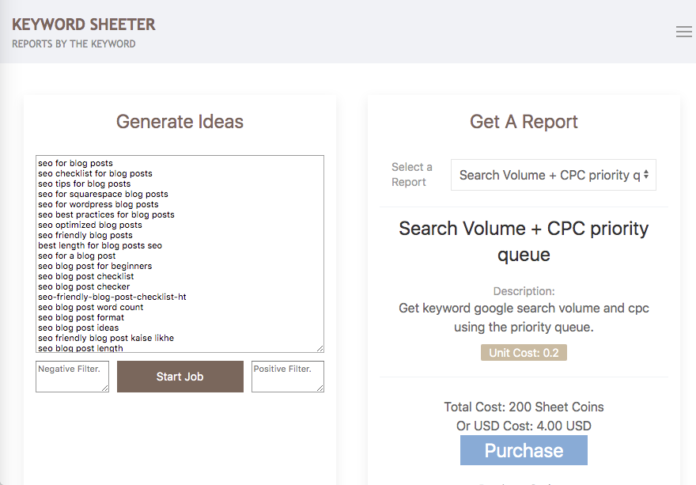
Keyword Sheeter is great for generating lists of related searches and a handy way to get ideas for blog post titles.
It is very simple for sure, but fast and effective. Best of all it is totally free and can be used without logging in.
All you need to do is plug in your keyword(s) and press “Sheet Keywords”, at which point the system spits out a ton of related keywords and phrases which it is pulling from Google Suggest (autocomplete). It will continue to generate keywords until you decide to press the Stop Sheeting button.
You can fine tune the results by adding negative or positive filters and the when you decide your list is complete you can download the results in a spreadsheet format (CSV, XLS or XLSX).
Keyword sheeter is a complementary addition to your SEO toolbox, but isn’t going to be your one and only, go-to keyword tool due to its relative simplicity and inability to provide information about the search volume of your keywords or how competitive your keywords are.
4Keyword Surfer – Chrome Browser Extension
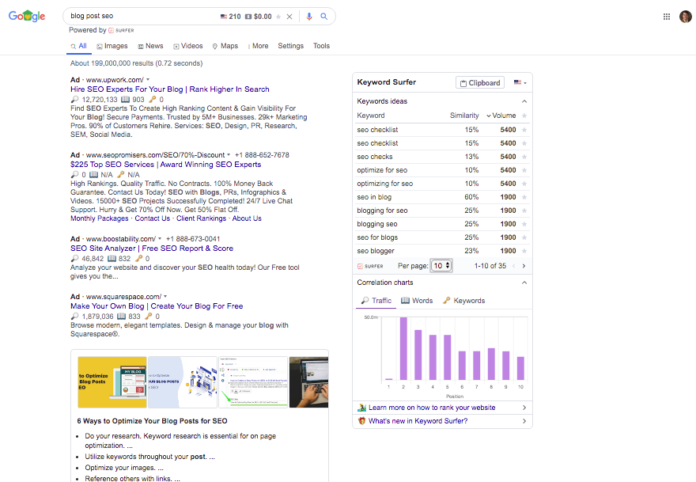
You will love the Keyword Surfer extension for Chrome! As soon as you install it, it automatically starts generating weighted keyword data (directly in the search result page – which is a huge time saver) based on the frequency of usage and a wealth of other info.
Among other features, you can select items from the list and drop them in a clipboard to make your own sheets, download as a CSV file and do your research with the data.
For a free tool, you get a ton of SERP (Search Engine Results Page) analysis.
Keyword Surfer provides search volume info (both global and country specific) using datasets from 70 countries, right in the search bar.
It will give you similar keyword suggestions along with the estimated monthly search volume for those correlated search terms, estimated monthly traffic for each domain in the results, and even provide CPC (Cost Per Click) estimates for Google Ad campaigns for keywords. A recent update removed the feature that used to provide backlink data about domains.
5Keyword Planner – Google Ads
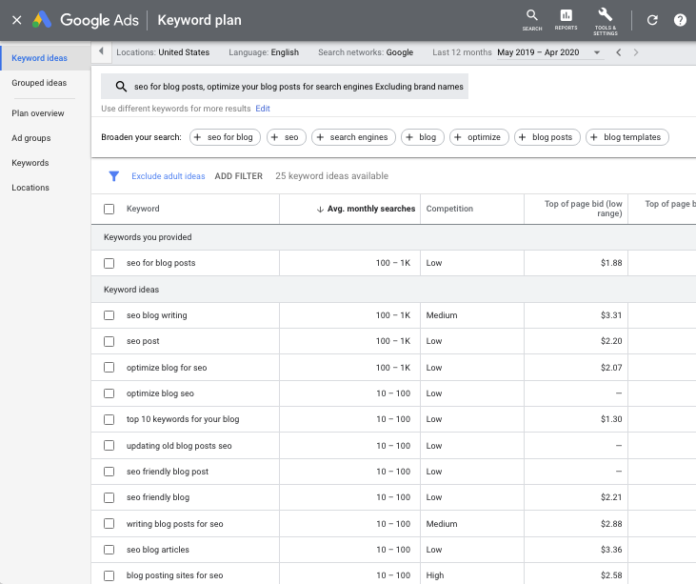
If you do not have a Google Ads account, you should set one up just to use the Keyword Planner. Technically, it is geared towards Pay Per Click ad campaigns (at some point you will likely decide to use paid ads, even if just for your own branded ads), but in the meantime, it can be used for keyword research for free.
As you can imagine, being a Google tool, Keyword Planner has all the bells and whistles and will provide you with everything you need to do in-depth keyword research for your website.
You can: research and find keywords that are relevant to your business, learn how those keywords have performed historically and find out how they are forecasted to convert in the future.

The Reddit Keyword Research Tool lets you pull up the name of any Subreddit and get a prioritized list of searches with monthly volume. Obviously the bigger and more active the Subreddit, the more keywords and phrases it will produce.
The tool is pretty basic, but it’s a great place to find blog post ideas, as well as questions that people want answers for.
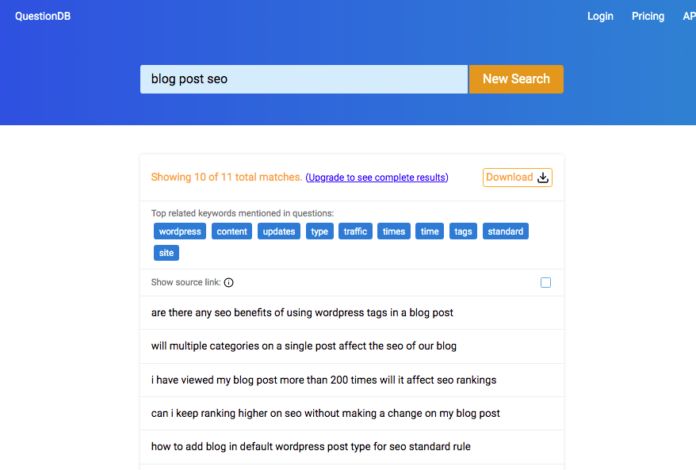
QuestionDB is another great tool to get ideas for the kinds of questions you can answer for the public, as well as keywords they use in their questions. The free version allows 10 results per search and you can download the data in a CSV file format.
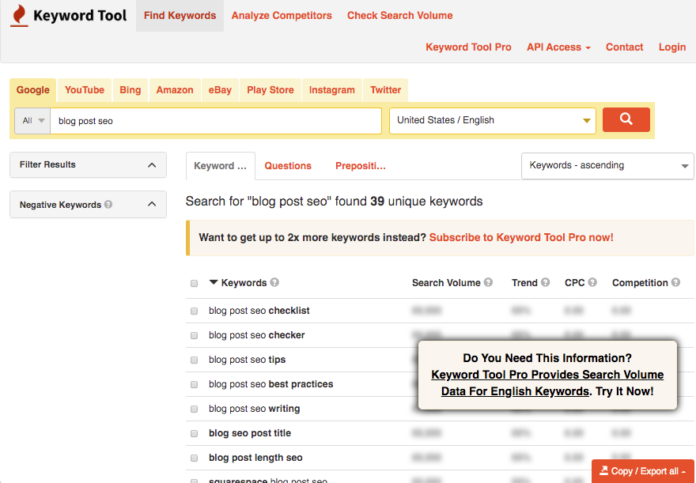
You’ve got to love these creative names! That is actually a lesson in and of itself. If you can get away with appropriating common keywords as your product name or brand, and gain enough domain authority to end up on the first SERP for those commonly used words, you win.
This tool is great because it gives you data from search engines like Bing, the search function of YouTube, Amazon, Ebay, Instagram, Twitter and others in addition to Google.
The free version will produce 750+ keywords, pulled from Google Suggest (autocomplete), and Keyword Tool can be used without creating an account or logging in.
If you are having a rough time figuring out which free keyword tool to choose, try the following one as well, it is specifically designed for finding focus key phrases:
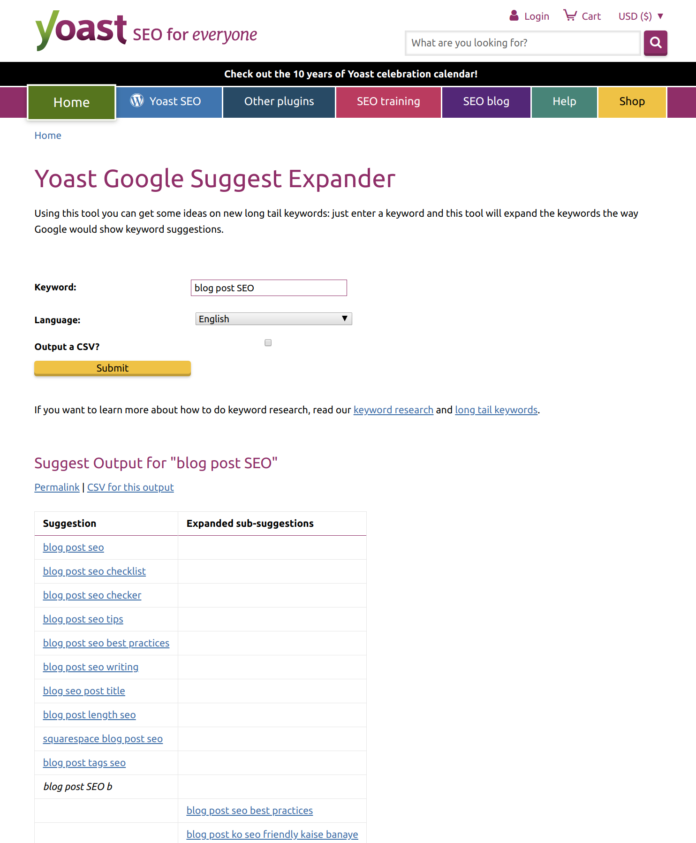
Final Thoughts
Each of these free keyword research tools, individually and combined, are guaranteed to be instrumental in helping you choose the right focus keywords, build solid SEO and reach your target audience.
Using each of these systems extensively will increase your knowledge, comfort level and confidence when creating content for your website and will do the trick in informing your SEO strategy for your articles and on-page content.
Whether these tools will satisfy your needs for the long haul is unknown, but regardless of that, using them will definitely set you off on the right track – the path to success.



